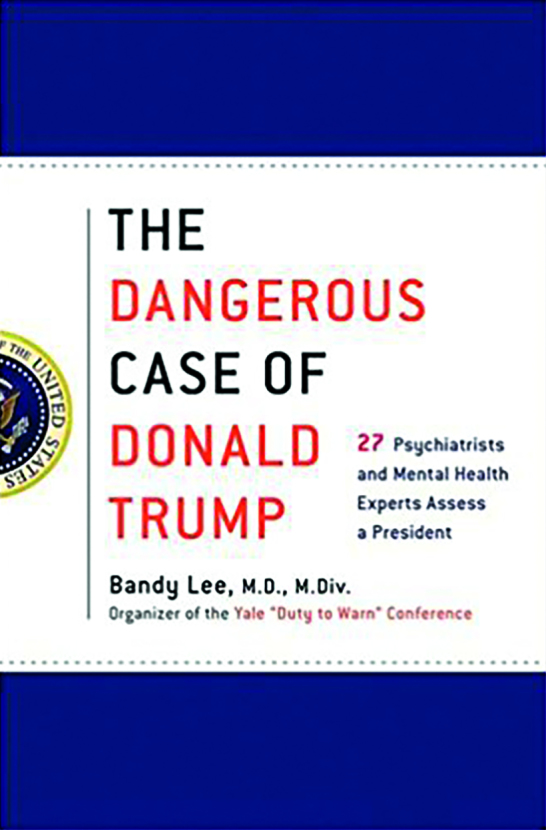
In The Dangerous Case of Donald Trump, a book published in October 2017, 27 psychiatrists and others point to the dangerousness of this president. They agree that, although a diagnosis should not be made without examination of the patient, dangerousness may be assessed from observed behaviour.
A forensic psychiatrist, who has studied the principles on which the assessment of current and future dangerousness in violent criminals is based, concludes:
‘Trump is now the most powerful head of state in the world, and one of the most impulsive, arrogant, ignorant, disorganised, chaotic, nihilistic, self-contradictory, self-important, and self-serving. He has his finger on the triggers of a thousand or more of the most powerful thermonuclear weapons in the world. That means he could kill more people in a few seconds than any dictator in past history has been able to kill during his entire years in power.’
The authors also consider the ‘Trump effect’ on society, and the malignant normality that is established — what was previously considered unthinkable becomes the norm. Some therapists have seen patients suffering from trauma and re-trauma resulting from the president’s actions, which mimic those of an aggressive abuser, and there were reports of an increase in anti-Jewish and anti-Muslim incidents immediately after his inauguration in January 2017.
The book addresses the dilemma about whether health professionals should make public statements about their concerns. Do they have a duty to warn and speak out? The authors of the essays conclude that indeed they do have this duty when the consequences of not doing so might be so catastrophic.
A bill has been introduced to Congress to mandate a procedure for medically and psychiatrically evaluating a president who is suspected of being unfit to perform their duties.
Dr Bandy Lee organised a conference at Yale in April 2017 with the title ‘A Duty to Warn’, and this book is an extended version of the proceedings. Although there is some inevitable repetition among the 27 authors, the book’s three-section structure — the Trump phenomenon, the Trump dilemma (is there a duty to warn?), and the Trump effect (on American society) — helps to steer the reader through.
Some chapters are brilliantly clear, others less so, but this doesn’t detract from the consensus: Trump poses a great danger to the future of humanity and the planet.
A chilling read.


